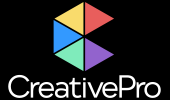Are Creativity and Dishonesty Linked?
Are creative professionals more dishonest than those not in creative fields? A new study in the Journal of Personality and Social Psychology suggests as much. The study, entitled “The Dark Side of Creativity: Original Thinkers Can Be More Dishonest” and written by Harvard Business School’s Francesca Gino of Harvard Business School and Duke University’s Dan Ariely, was triggered by the recognition that creative innovation and ethical violations are often linked. The phrase “creative accounting” comes to mind.
The study in part was inspired by news stories that referred to investor Bernie Madoff’s “creative Ponzi scheme.” In an interview in Co. Design, Gino said: “These stories made us think there’s a link between creativity and dishonesty. Then we started thinking about examples in literature, movies, and comic books — this idea of the evil genius. We started to think that maybe there’s something to this idea.”
Gino and Ariely devised five experiments that tested the “moral flexibility” of creative people. For example, participants who had been screened as creative were given 50 multiple-choice questions and told to circle the correct answers. Afterward they would transfer their answers to a bubble sheet (like those on standardized tests). The test administrator told them that by accident the bubble sheets they had been given had the correct answers faintly marked on them. When the two answer sheets were compared, participants were more likely to have changed their answers to the “right” answers on the bubble sheet.
The idea that creative professionals are somehow dishonest is hard to swallow. Art departments are not staffed with Bernie Madoff clones, after all. But the researchers make a subtler point. Creativity is a way of telling stories, after all, and the best stories are rewarded. And telling the best stories often means stretching the truth.
So what’s the takeaway from this study? Value creativity but pay attention to how it’s attained. “ [P]eople who are creative or work in environments that promote creative thinking may be the most at risk when they face ethical dilemmas,” Gino and Ariely conclude.



So 50 people who were screened as creatives were tested. For comparison, were 50 people screened as non-creatives also tested to compare groups? If not, the test is meaningless. How about testing 50 accountants, 50 construction workers, 50 lawyers, 50 car mechanics and 50 housewives and showing the comparisons between them all–and then see how “creatives” stack up. This would then give some kind of relative testing between the groups, if nothing else. I don’t buy this type of quack sociological testing that is not scientific and is bound to give skewed results.
I agree that the test is flawed and useless. I would be curious to see how “non-creative” subjects scored on the moral flexibility test. I bet it’s just human nature to want to improve your performance by altering your answers, not a facet of the “creative” personality.